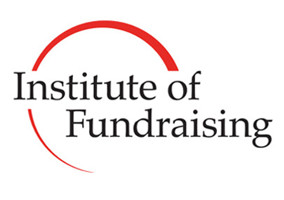A new study commissioned by the Institute of Fundraising shows that 24 per cent of one-off donors go on to become regular givers to charity as a result.
The results of the Insights into charity fundraising: Changes in knowledge, attitude and action as a result of donating survey published today by the IoF and conducted by YouGov showed that 24 per cent of 2,006 respondents said they had gone on to become regular givers to charity as a result of donating.
The study showed that overall 63 per cent of respondents to the survey said they went on to take an “additional positive action” as a result of donating to charity once.
“Additional positive action” in the case of the survey were varied, but included 22 per cent who said they’d “talked to friends, colleagues or family about the charity cause or issue”; 22 per cent “recommended the charity to friends, family or colleagues”; 22 per cent who “supported, liked or followed” the charity on social media and 19 per cent who “looked for information” about the cause or charity.
The survey is the first of four that the IoF have commissioned from YouGov to be published. The second report is due to be published on Friday, with the second two to be published in June “after the parliament has returned”, according to an IoF spokesman.
The spokesman said that the research was part of “an overarching project” designed to show that “when fundraising is done well, which is mostly is, it has far-reaching benefits for all parties beyond simply raising money for good causes”.
Women ‘significantly more likely to take positive action’ after donation then men
Survey data also showed that women were far more likely in every instance to take a secondary positive action in relation to charity, following a one-off donation, then men.
In terms of talking to friends or family about a charity or cause after donating, 35 per cent of female respondents said they would compared with 22 per cent of men. 28 per cent of woman said they would support a charity on social media after a donation, compared to just 15 per cent of men. Also, 19 per cent of female respondents said they would volunteer at a charity they’d donated to, compared to just 12 per cent of male respondents.
Women were also reportedly more likely than men to say “they felt better or more positive” as a result of donating.
Proportion of 18 to 39-year-olds becoming regular givers ‘much lower’ than rest
The survey did find however that the proportion of respondents between the ages of 18 and 39 who said they would go on to become regular givers was “much lower” than older people.
While the mean percentage of one-off donors going on to become regular givers amongst respondents was 24 per cent, that figure dropped amongst the 18 to 29s and 30 to 39s age groups.
Within these age groups, just 14 per cent of respondents amongst 18 to 29 year-old age group said they went on to become a regular giver after making a one-off donation. That figure only jumped to 17 per cent amongst 30 to 39-year-olds.
In Fundraising Magazine
According to the report, this “confirms that it is harder for charities to get younger people to commit to regular giving”.
Daniel Fluskey, head of policy and research at the IoF, said: “Fundraising and the generosity of the public is vital for charities. But these remarkable findings show that supporting the causes we care about also has wider benefits for society and those donating.
“Whether going on to volunteer, signing a petition, learning about health risks, or just feeling more positive, giving to a cause you care about is a good thing for those donating, as well as charities in need of support.”
Related Articles












